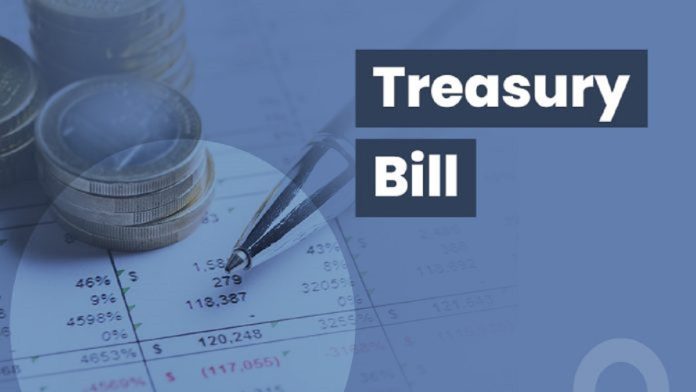The average yield on Nigerian Treasury Bills (NTBs) declined to 21% in the past week, as bullish activity dominated the secondary market following significant under-allotment at the primary auction. This development comes ahead of the anticipated release of March inflation figures.
Market activity wrapped up on a bullish tone, as domestic investors stepped in to absorb NTBs sold by foreign portfolio investors (FPIs) exiting naira-denominated assets in response to evolving global risk sentiments.
Investor appetite for Treasury instruments surged after the Central Bank of Nigeria (CBN) under-allotted the bills during the midweek auction. This coincided with a wave of selling by offshore investors, creating a demand-supply balance that helped stabilize yields in the secondary market.
According to market dealers, sentiment was mixed along the yield curve. While the short end experienced a 36 basis point (bps) uptick in average yield, the mid and long tenors saw average yields decline by 29 bps and 22 bps, respectively.
The CBN auctioned fewer Treasury bills than the volume demanded during its midweek primary market sale, which took place ahead of the release of rebased inflation data.
Institutional investors with large cash positions turned to the secondary market in search of yield, thereby intensifying demand for naira assets toward the end of the week.
Trading dynamics were said to be mixed, with initial bearish momentum led by FPIs shedding long-dated maturities, notably those expiring in February and March 2026. The resulting selling pressure caused mid-curve rates to inch upward, as noted in fixed-income market updates.
Investor participation tapered off in the lead-up to the auction, reflected in lighter trading volumes and reduced interest on the buy side.
Despite this, the primary market auction drew robust demand, recording total subscriptions of ₦1.126 trillion compared to the ₦800 billion on offer. However, the CBN allotted just ₦424.58 billion, indicating a 47% under-allotment.
Stop rates increased across shorter tenors: the 91-day instrument climbed by 50 bps to 18.50%, while the 182-day bill rose by 100 bps to 19.50%. The 364-day paper remained unchanged at 19.63%.
Following the auction, there was some demand for the newly issued 1-year paper maturing on 09-Apr-2026. However, due to limited supply, investor focus shifted to the closest maturity, the 26-Mar-2026 paper.
Overall, average yield on Nigerian Treasury bills declined by 6 basis points to settle at 21.05%, according to analysts at CardinalStone Partners Limited in a market note to investors.











